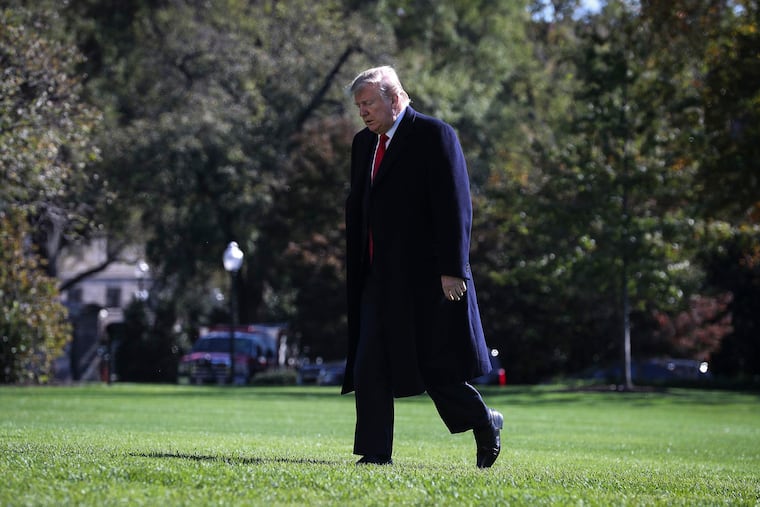Appeals court rejects Trump’s attempt to withhold tax returns from local prosecutors
A federal appeals court on Monday rejected President Donald Trump's effort to block New York prosecutors from accessing his tax records and Trump's sweeping claims of presidential immunity.

A federal appeals court on Monday rejected President Donald Trump's effort to block New York prosecutors from accessing his tax records and Trump's sweeping claims of presidential immunity.
The decision is the second time in recent weeks that a federal appeals court has ruled against the president in his bid to stop investigators from scrutinizing his private financial records. The case is one of several legal clashes testing the limits of presidential power that is expected to reach the Supreme Court as soon as this term.
The Manhattan District Attorney is investigating hush-money payments made in the lead up to the 2016 presidential election. The ruling does not mean that Trump's tax records will be turned over immediately. Local prosecutors agreed to delay enforcement of the subpoena to Trump's longtime accounting firm if the president's lawyers move quickly to ask the Supreme Court to intervene.
At oral argument last month, Trump's private attorney William Consovoy told the court that the subpoena is a politically-motivated "fishing expedition." A sitting president, he said, cannot be investigated - or prosecuted - while in office, even for shooting someone on the streets of Manhattan. His assertion of "temporary presidential immunity" came in response to a question about Trump's own hypothetical from 2016, when he said as a candidate his political support was so strong that he could "stand in the middle of Fifth Avenue and shoot somebody" and not "lose any voters."
The appeals court upheld an October ruling from U.S. District Judge Victor Marrero, who dismissed Trump's lawsuit. Marrero rejected Trump's claim of immunity as "repugnant to the nation's fundamental structure and constitutional values."
The case began in August after the Manhattan District Attorney Cyrus Vance Jr. subpoenaed Mazars for eight years of the president's tax records and other financial documents. The office is examining whether any state laws were broken in connection with the 2016 payments to silence two women who said they had affairs with Trump.
Internal Justice Department legal opinions say sitting presidents cannot be charged by federal prosecutors. But those guidelines do not apply to Vance, a Democrat and an elected New York prosecutor who enforces state laws.
Vance's investigation followed the conviction last year of Trump's former attorney Michael Cohen, who pleaded guilty to federal campaign finance violations. Cohen said Trump directed - and reimbursed him - for payments he helped arrange to Stormy Daniels and Karen McDougal to keep allegations of affairs with Trump secret before the election.
Vance has said that, at this stage of the investigation, Trump "has not been identified as a defendant, nor is there an assumption he will be."
Trump has denied the relationships and any wrongdoing connected to the payments.
The president is fighting similar attempts by congressional Democrats to obtain his tax records. The federal appeals court in Washington in October upheld Congress's broad investigative powers and rejected Trump's request to block a House subpoena for his accounting firm records.
A different panel of the 2nd Circuit is considering a separate lawsuit from the president aimed at stopping Deutsche Bank and Capital One from handing over his records to two other House committees.